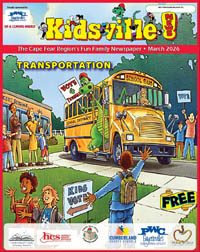 The world has changed dramatically over the past year. We have faced unprecedented challenges that affected every single aspect of life.
The world has changed dramatically over the past year. We have faced unprecedented challenges that affected every single aspect of life.
We have adapted, overcome and improvised on a daily basis in order to cope with the new normal of life. From wearing masks in public and keeping a safe distance to complete isolation, people have made major adjustments to their lives in order to cope with the pandemic. And, sadly, for many, the situation created by the pandemic has ultimately led to a desperate struggle for survival.
Fortunately, we live in an era of technology. We are able to do things now that were impossible for past generations.
We can telework, order food online, Skype, Facetime and teleconference from our homes or even from the palms of our hands. Even during times of isolation, we are able to stay virtually connected and be productive.
Throughout the pandemic, a good number of people were able to continue working and feed themselves, thanks to the advances of the last century and especially the last few decades.
We now take things such as cars, computers, smartphones and the internet for granted, but these items have made coping with the pandemic a completely different experience when compared to the Spanish Flu pandemic of 1918.
We still face challenges, however, and it doesn’t look like things are going to go back to what we remember as normal for a while. To face these challenges, we are going to need fresh new minds to invent new ways of doing things. We now have a generation of young people who grew up in a world of technology and have an innate understanding of how to live in a cyber-connected world.
Unfortunately, technology can be a two-edged sword, and with so many distractions, many are falling short of their true potential.
The U.S. education system has been pushing STEM (Science, Technology, Engineering and Math) education and careers for years because of the shortage of people in these degree fields.
Now that we are faced with new challenges stemming from the pandemic, we need STEM-educated individuals now even more than ever. Who will research new cures, invent new ways to work and communicate, or design the next generation of ventilators?
An old adage (late 1800s) states, “Everything that can be invented has been invented.” But these words are far from the truth. Think of everything that has been invented since the late 1800s. Had this been true back then, we would still be riding horses for primary transportation and reading by candlelight. Without the technological advances of the last century, our current crisis would have been much more difficult to navigate.
So, here’s a call for individuals to accept the challenge to become the next generation of scientists, inventors and engineers. You may be the one who invents something new that positively changes
our world.
FTCC’s Associate Degree Engineering program can help you begin this exciting journey. Fall classes begin Aug. 16. Apply for Fall classes today and allow FTCC to help you find your way forward. For more information visit https://www.faytechcc.edu/.

 How to resolve AdBlock issue?
How to resolve AdBlock issue? 








